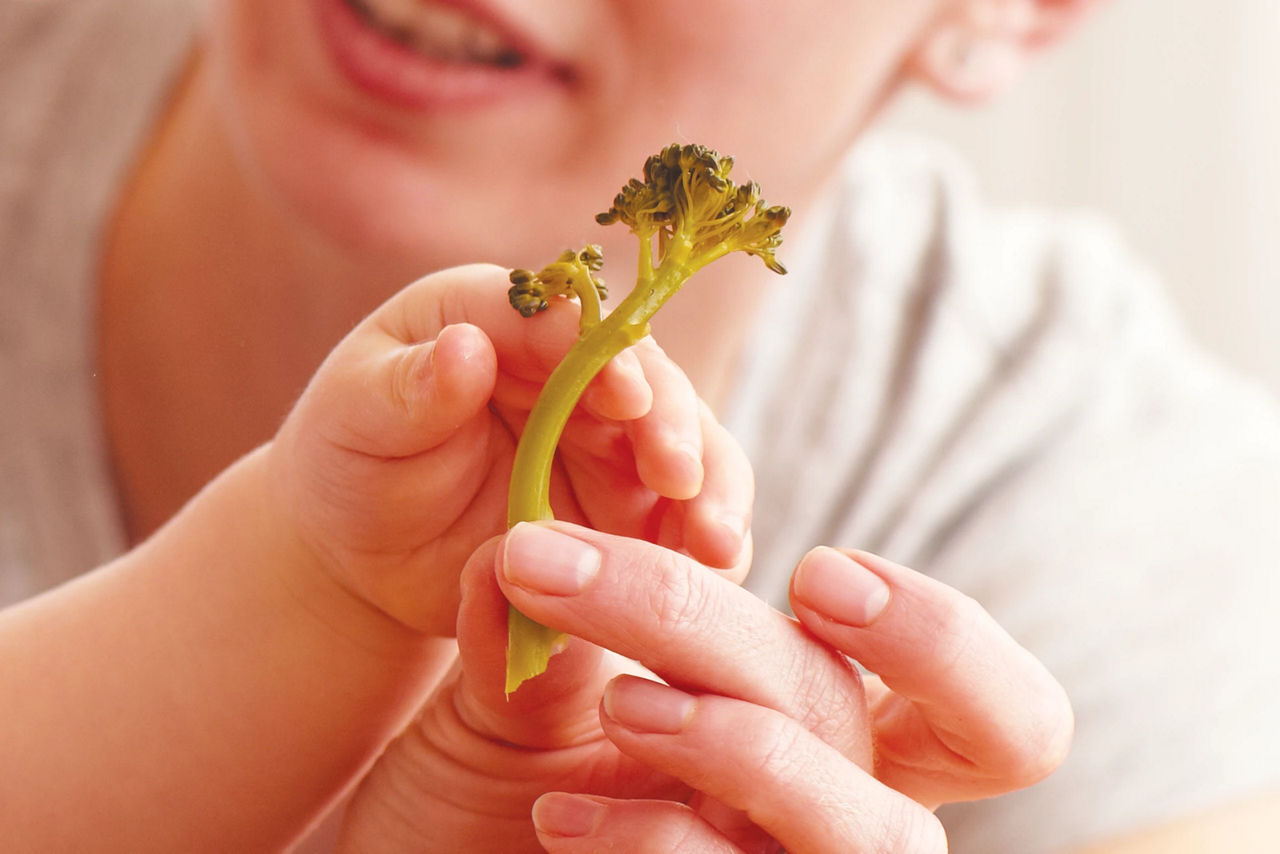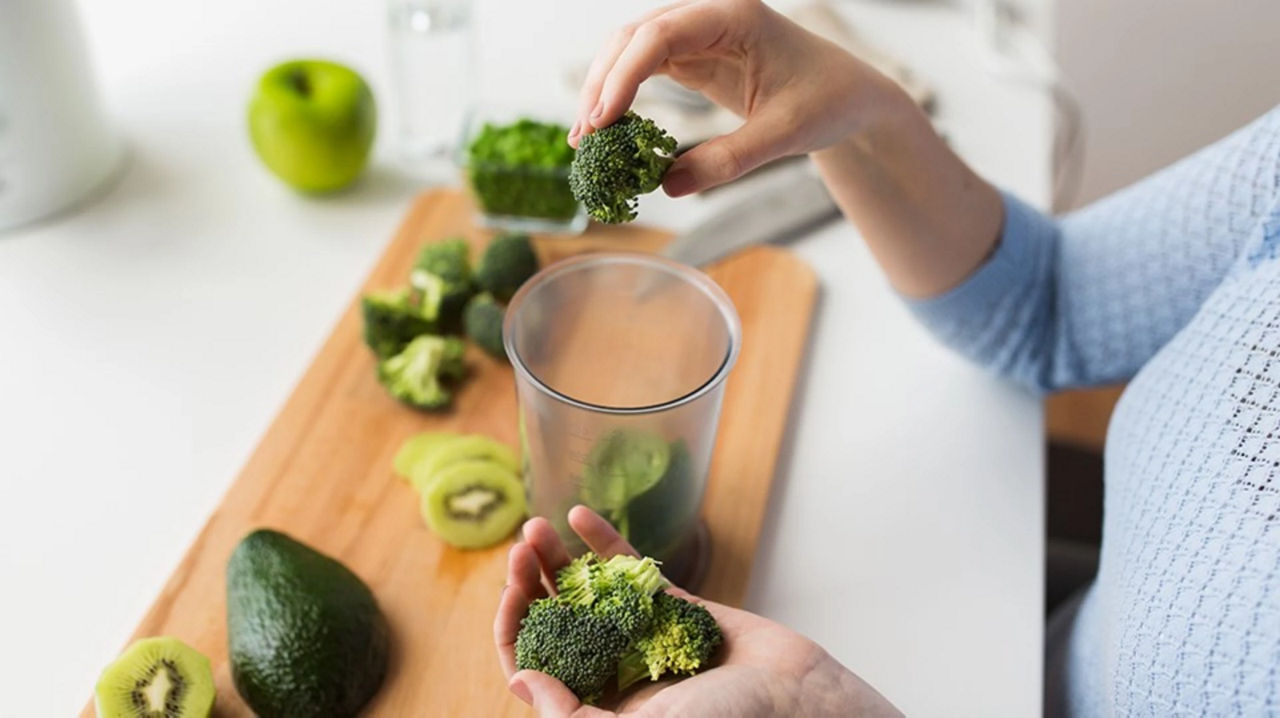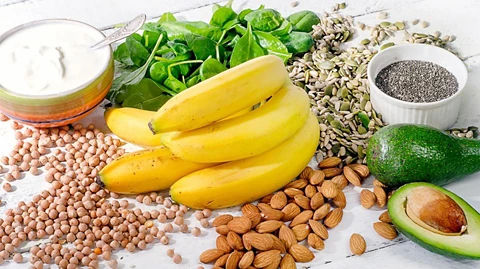Coping with picky eaters
HUNGER GAMES
Overcoming resistance at mealtimes
Many toddlers are temperamental when it comes to food. Picky eating is a normal, although sometimes worrying, part of their development. Learn what may be behind your toddler’s ever-changing eating habits, how to encourage them to eat a wider variety of foods and how to cope if your toddler seems to have a more serious aversion to trying new foods.

Understanding your toddler’s fussy eating habits
Around half of all toddlers become choosy over what they will and won’t eat, and most toddlers have picky days. This isn’t necessarily your child testing the boundaries, although it can be a way of asserting themselves.
Another, sometimes more reassuring, explanation of food aversions is that they are an instinctive survival mechanism that relates back to the days of the Stone Age. Known as the ‘neophobic response’, this suspicion and refusal of new foods that begins after the first birthday is thought to have steered toddlers away from trying potentially poisonous plants as they explored more independently.

Offer your toddler finger foods to allow them to be in control of feeding themselves
These days, temperamental behaviour around food can cause frustration and concern that toddlers aren’t getting the wide variety of nutrients they need for healthy development. But young children are surprisingly good at getting what they need. Fortunately, picky eating habits tend to change and pass fairly quickly without any long-term effects on health1.
Your toddler’s appetite can vary from day to day, as can their preferences for certain foods.
Other possible reasons for your toddler refusing food are that they’ve already eaten enough; they simply have a smaller appetite than other children of the same age; their appetite is lower on a particular day; they are unwell; they are feeling rushed; or they are feeling emotional in some way, whether it is upset, anxious or insecure1.
Although fussy food habits are normal and you're not alone, a toddler’s defiance can make it hard to provide a varied, balanced diet. As long as your picky eater is growing and developing well, they should be getting the nutrients they need.
Practical tips to encourage a picky toddler to eat well
The following advice may help to make mealtimes easier and encourage your toddler to eat:
- Eat with your toddler as often as possible – they learn by example and will enjoy time spent as a family.
- Develop a regular eating routine that works around naps – most toddlers need three meals and two or three snacktimes each day.
- Avoid letting your toddler become too tired or hungry before eating – they’re unlikely to eat well.
- Offer two courses – a fruity or naturally sweet dessert provides more calories and an opportunity to give them a wider variety of nutrients.
- Be encouraging when they eat well – toddlers love praise.
- Arrange for them to eat with other toddlers – you may find they eat better when surrounded by their peers.
- Offer finger foods to allow them to be in control of feeding themselves.
- Turn off distractions like the TV and move toys and games away from the eating area to create a calm, focused environment – toddlers can only focus on one thing at a time.
- Take your time but allow the meal to take 20–30 minutes at most – even if your toddler hasn’t eaten much, they’re unlikely to eat any more after that. Make it clear that they will have to wait until their next mealtime or snacktime for more food.
- Respect your toddler’s signs that they’ve had enough. These include refusing food by turning away or keeping their mouth shut, spitting food out, refusing to swallow, pushing their bowl or plate away, crying or gagging.
- Cultivate interest and a positive relationship with food by involving them with the shopping and food preparation.
- Change the venue – a picnic can make mealtimes fun.
- Keep a record of everything your toddler eats for a week – you may see that they’re getting more variety than you thought.
- Avoid offering alternatives – your toddler will soon work out that they can get their favourite foods by refusing others.
- Avoid giving them large drinks at mealtimes or an hour before a meal as this can fill them up and leave less room or appetite for food.
- Persevere – it can take several tries before a toddler likes and accepts a new food.
Coping with extreme food refusal
Some toddlers are very worried about trying new foods and even start to refuse food they used to enjoy. This could be linked to a sensory issue; not liking the sensation of food on their hands and face; or having an anxiety about food linked to a certain memory or experience. Extreme food refusal can be very worrying for parents but the following advice can encourage your toddler to have a healthier relationship with food and textures:
- Offer plenty of opportunities for messy play with different textures, such as paint, play-doh, sand and mud.
- Avoid leaving long times between meals in an effort to increase their hunger – this can make them more anxious. Instead, give small, frequent meals to provide plenty of eating opportunities and ensure they’re taking on the calories they need.
- Don’t try and disguise new foods in old favourites – toddlers will often detect them and become more anxious about the foods they like.
- Don’t force or pressure your toddler to eat – they may vomit, which will reduce their calorie intake and add to anxiety about eating.
Very occasionally, fussy eating may be linked to a medical problem. If you are worried that your toddler’s nutritional intake is affecting their health, or the picky eating phase is extended, you should talk to your doctor or health visitor.
Next steps
Try holding your child’s attention and making food fun with the following suggestions:
- Cheese cubes – let your child build a tower and then eat the blocks
- Offer the rainbow – a more colourful range of foods can hold their attention and provide a wider range of nutrients
- Let your child dip breadsticks or carrot sticks into a nutrient-rich dip such as hummus or a vegetable purée
- Let older toddlers make their own pizza from a selection of healthy toppings
Last reviewed: 27th August 2014
Related articles

Need some help?
You can get quick answers to common questions in our FAQs.
Alternatively, if you need help with general pregnancy or baby advice, or maybe on using or ordering our products - our expert team are always on hand to talk about feeding your baby.
1. Infant and toddler forum. Why toddlers refuse food [Online]. Available at: www.infantandtoddlerforum.org/why-toddlers-refuse-food#.U3Dd_1eThMI [Accessed May 2014]
2. Infant and toddler forum. How to manage your toddler’s faddy eating [Online]. 2009. Available at: https://www.infantandtoddlerforum.org/media/upload/pdf-downloads/how-to-manage-your-toddlers-faddy-eating-things-to-avoid.pdf [Accessed May 2014]



